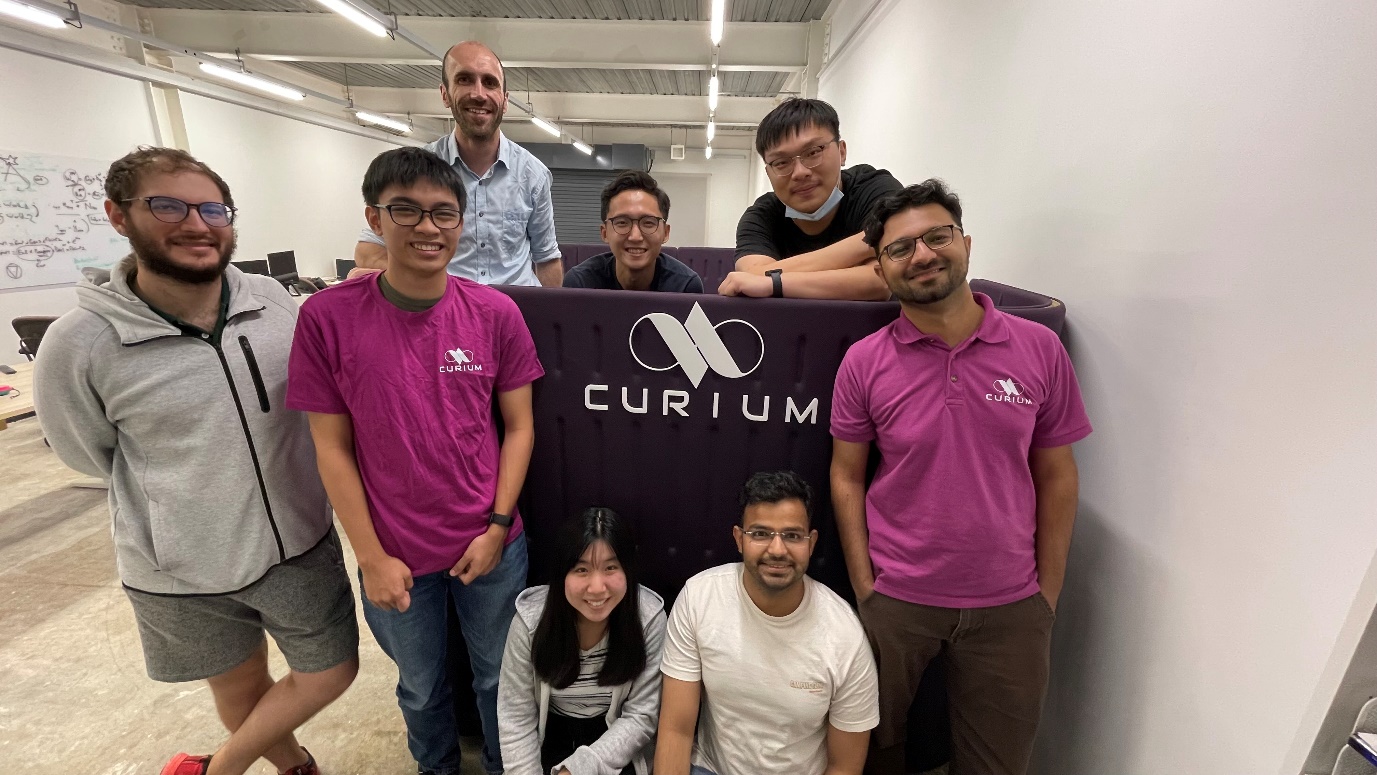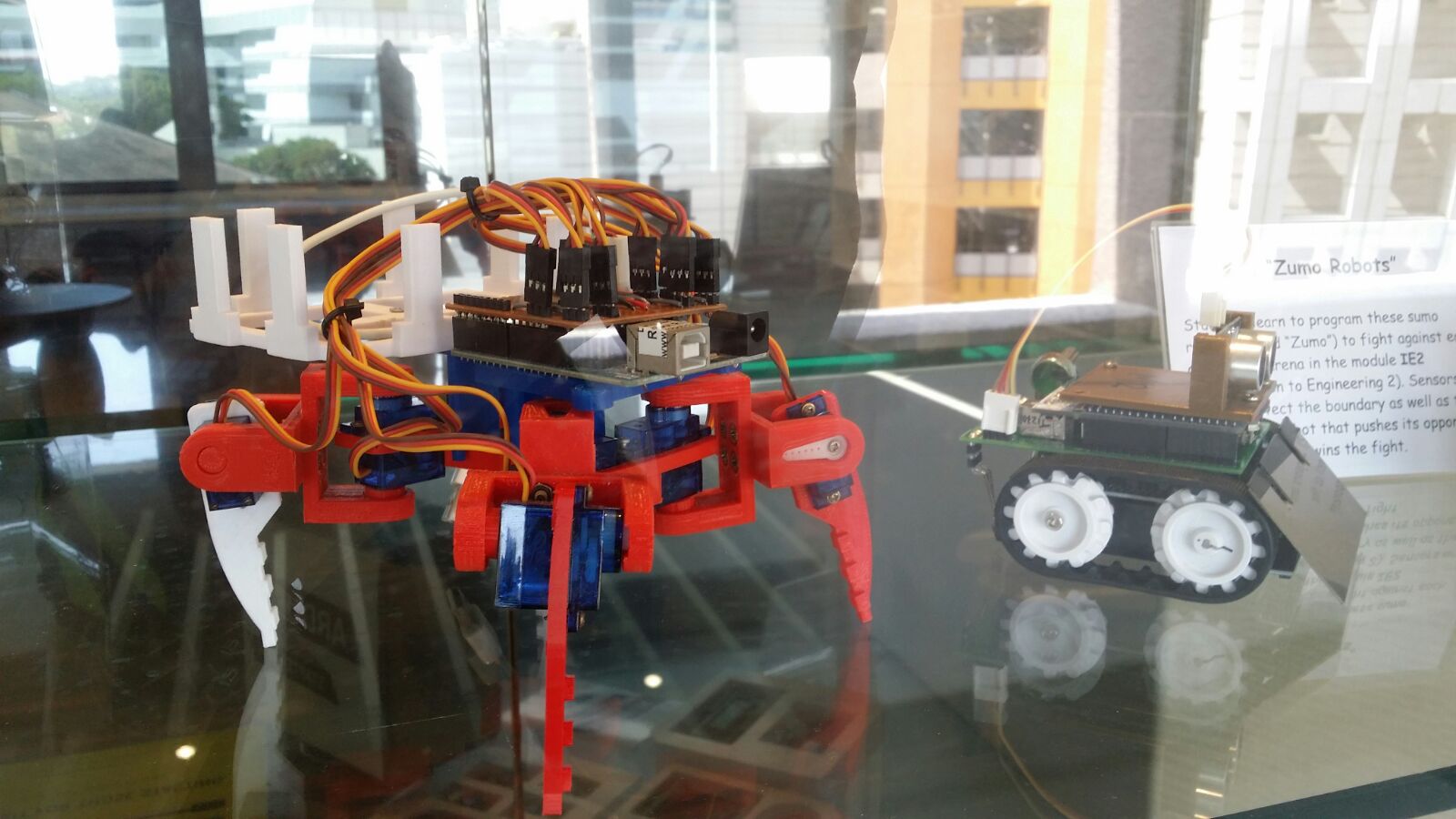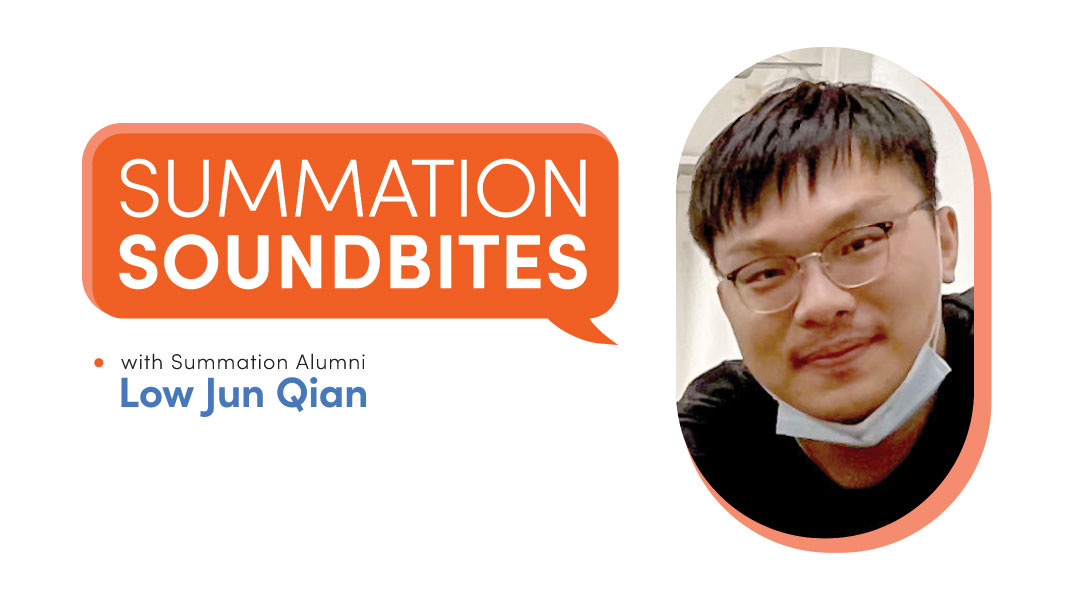Summation Soundbites: Getting autonomous vehicles road-ready
Tue, 12/20/2022 - 12:00
In our conversation with Low Jun Qian, the Summation programme alumnus shares more about the inspirations behind his journey to Deep Tech and his experience working at a local startup.
Tell us about yourself and your work at Curium.
I am a final year NTU undergraduate pursuing a degree in Information Engineering & Media, a course that combines three different fields – Engineering, Information Technology and Media. I chose this course of study because I found the media component, which intersects art and engineering, interesting.
I recently completed my Summation apprenticeship with Curium, a startup specialising in calibrations, specifically for autonomous vehicles (AVs). Self-driving vehicles depend on sensors such as Cameras, IMU (inertial measurement unit), Radar, and LiDAR to navigate, so to ensure the accuracy of the sensor information, it is important they are properly calibrated and aligned.
We take the data collected by the sensors from these AVs – think of these sensors as the eyes and the ears, and we, the brain – and we calibrate them using our algorithms. My job is to figure out a way to deliver the results of this calibration to the customer in the quickest, smoothest way. It is no easy task as it can take more than two hours just to calibrate a single car optimally.
How was your experience working at Curium?
I have had a fascination with networking systems since I was young – more about that later. My role at Curium allowed me to work with IoT networks and devices, which tapped into my key areas of interest. At the same time, I also got to further my learnings with cloud and networking, especially since Curium leverages the AWS platform to calibrate the sensors for AVs.
Working in cloud and IoT naturally puts me at the centre of things, which gives me a good technical foundation to learn about other fields like AI. At Curium, I am also exposed to all kinds of programming languages like Java, C++ and Python. For a software developer, it is an invaluable experience.

Teamwork makes the dream work at Curium, where Jun Qian (top right) completed his apprenticeship under the Summation programme
In terms of work culture, we enjoy an incredible amount of autonomy at Curium. As the company operates on a task-based rather than an hours-based approach, we are measured by the progress we make in our work, instead of when you’re seated at your desk. It’s also very collaborative, when we hit a roadblock at work, everyone will come together to give ideas on how to solve it.
Working in a start-up means you get a chance to try different things which you may not otherwise get to try in a larger, more established organisation. I had opportunities to do the kind of work that a senior software developer does, as well as take on responsibilities such as mentoring other interns to help get them up to speed.
You took up computer engineering as a polytechnic student, and later Information Engineering & Media at university. What drew you to these fields? What is it about these areas of tech that keeps you interested?
You might say it started with computer games in Secondary School. In the past when we played games like Minecraft, the experience was not as seamless as it is now. We had to do stuff like port forwarding and use free software utility like LogMeIn’s Hamachi to set up VPN and connect to one another in order to play. That got me interested in networking.
Another source of inspiration was my Polytechnic lecturer, who was really into cloud and networking. He was an excellent teacher who tried to bring out the best in every student. A lot of the knowledge that formed the foundation on which I stand today, such as in blockchain, IoT, cloud computing, 3D printing and some electronics – was sparked off and cultivated by him during my time in Polytechnic.

Jun Qian’s first electronics project – a 3D-printed robot.
I remember the first project he set us was to build a 3D-printed quadruped robot. Even though I had no experience in programming and no idea what microchip controllers were, I would work on such projects during my holidays. That was my way of seeking entertainment – I thought it was a better use of my time than playing video games every day! It was a very exploratory way of learning.
That was also how I ended up joining hackathons. My lecturer would set us tasks of varying complexities and leave us to work on them. For those students who got really hands-on with the tasks and display potential, he would take them under his tutelage and push them to take it further.
How did joining hackathons and other tech competitions in school help you learn more about the field?
One of the things that left the deepest impression on me from these events was how fast technology moves. In a hackathon, participants are encouraged to think big, and many ideas proposed may seem wild or infeasible with current technology limitations, but in just two years, I’ve already seen some of the ideas thrown up during these competitions being implemented. I had fun working with my team on the pitches, but the best part for me was getting to hear new ideas from everyone else.
You mentioned you picked your current course of study because you are interested in the combination of engineering and art. Could you tell us more about that?
One thing I’ve learnt when trying to explain hackathons to my friends is that a lot of people don’t really understand what engineers do. We need to communicate what we do better, whether visually or through language. I wanted to help bridge that gap.
The art-focused components in my course helped train my aesthetic sense. I never used to care what a button looks like, but now it helps me think differently about components of my work such as UI/UX, which are a lot more ‘human’ in nature. While I’m not exactly an artist, I thoroughly enjoyed the art aspect of my course, and thinking about how it interacts with engineering.
Tell us something unexpected you learnt from being a part of the Summation Programme.
A lot of people think it is much easier to get a position with a startup, and that their requirements are lower. However, their requirements are actually much higher than even MNCs because we need to hit the ground running, be on top of things and learn on our own. So, it’s perfect for people who love challenges.
What advice do you have for other people interested in pursuing a career in Deep Tech?
It is crucial that you build a good technical foundation for yourself. Practical experience, such as working on projects and participating in Hackathons, is one way to do this. Once you have that foundational knowledge, it is easier to diverge and pick up the necessary knowledge and skills. Putting a tech product together typically entails a vast number of different areas of expertise – rather than putting pressure on yourself to master each area in depth, aim to improve yourself enough to deliver good results on what you're working on.
Would you like to go beyond an ordinary tech apprenticeship and hone your skills with a Deep Tech startup? Find out more about SGInnovate’s Summation programme here.
Trending Posts
- A Guide to Singapore’s Hydrogen Ecosystem
- Walking the tightrope of disclosure to create a robust IP strategy
- Why intellectual property (IP) strategy can mean the difference between life and death for a startup
- Going behind-the-scenes in a MedTech startup for a 6-month internship to create lasting impact
- A Guide to Singapore’s Quantum Ecosystem






